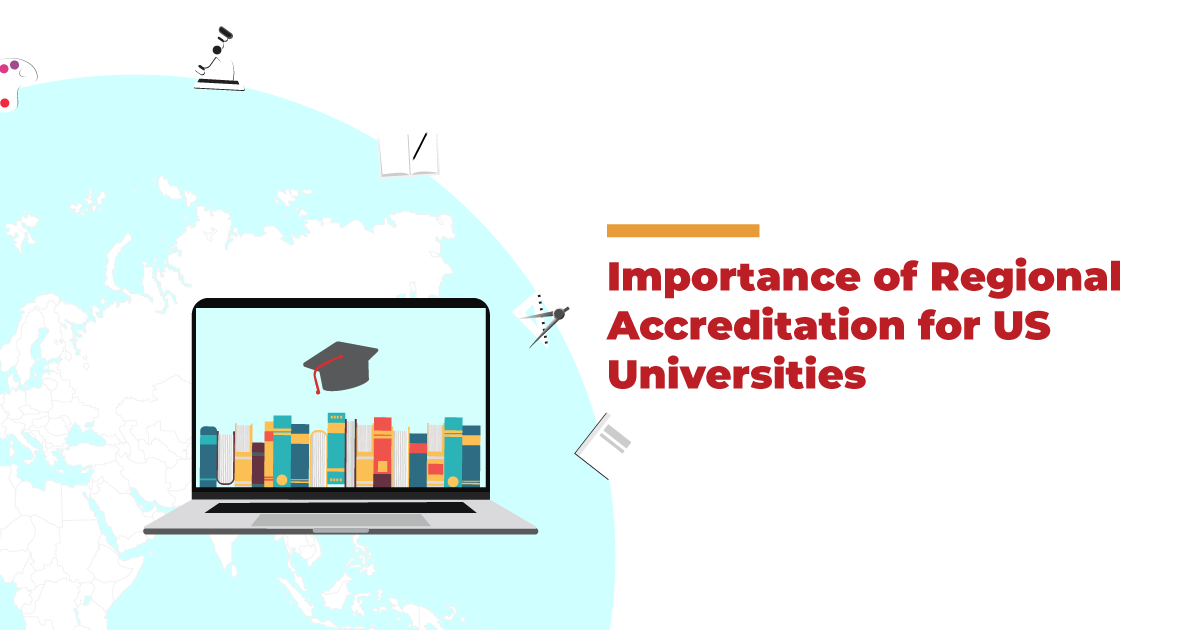Regional accreditation in the United States is a critical aspect of higher education, serving as an assurance of quality and a benchmark for educational institutions. It is a voluntary, non-governmental, peer-review process that evaluates colleges and universities based on their adherence to rigorous academic standards and commitment to continuous improvement.
The value of regional accreditation in the USA includes the following:
- Quality Assurance: Regional accreditation ensures that institutions meet high academic standards in terms of curriculum, faculty qualifications, student support services, and institutional resources. This quality assurance helps students, parents, and employers trust that the education provided by accredited institutions is of a high calibre.
- Transferability of Credits: Credits earned at a regionally accredited institution are more likely to be accepted for transfer to other accredited colleges or universities. This is particularly important for students who wish to continue their education or change institutions without losing the credits they have already earned.
- Access to Federal Financial Aid: Only students enrolled in regionally accredited institutions are eligible to receive federal financial aid, including grants, loans, and work-study programs. This financial support can significantly reduce the burden of tuition and related costs for students.
- Employer Recognition: Employers often look for graduates from regionally accredited institutions when hiring, as it ensures that the candidate has received a quality education that meets established standards. Additionally, some employers may offer tuition reimbursement for employees pursuing further education, but this is typically limited to regionally accredited institutions.
- Graduate School Admissions: Many graduate and professional schools require applicants to hold a degree from a regionally accredited institution to be eligible for admission. This is particularly important for students who wish to pursue advanced degrees or specialised certifications.
- Institutional Improvement: The accreditation process encourages institutions to engage in continuous self-assessment and improvement. By regularly reviewing their academic programs, administrative procedures, and student support services, institutions can identify areas for enhancement and implement changes to better serve their students and communities.
In the United States, there are six regional accrediting bodies, each responsible for evaluating and accrediting institutions within a specific geographic area:
- Middle States Commission on Higher Education (MSCHE)
- New England Commission of Higher Education (NECHE)
- Higher Learning Commission (HLC)
- Southern Association of Colleges and Schools Commission on Colleges (SACSCOC)
- WASC Senior College and University Commission (WSCUC)
- Northwest Commission on Colleges and Universities (NWCCU)
Accredited institutions are listed on the CHEA website. In conclusion, regional accreditation is a valuable indicator of quality in the U.S. higher education system. It provides assurance to students, employers, and other institutions that the education provided by accredited colleges and universities meets established standards and promotes continuous improvement.





